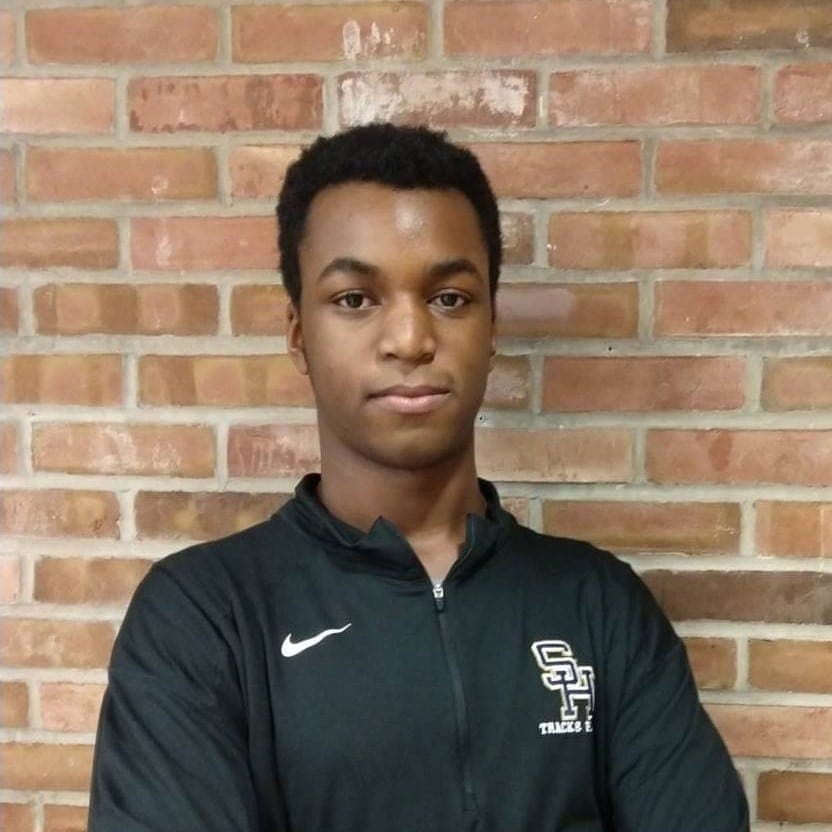
Sgt. Sammy Davis Jr.
Every year, we honor veterans on Veterans’ Day. Today, we take a look at a recent recipient of the Good Conduct Medal who had spent years waiting for the honor he had long since earned.

Listen to Roar with the web player or subscribe at any of the links at the Roar webpage. This transcript may contain grammatical edits.
Chudy: Every year we honor veterans on Veterans day. Today, we take a look at a recent recipient of the Good Conduct Medal who has spent years waiting for the honor he was due.
From The Panther Eye, this is Roar.
How long did you serve in the military?
Sgt. Davis: I served for 14 years, 30 days. A little over 14 years.
Chudy: Why did you choose to serve in the military?
Sgt. Davis: Coming from a small town in Alabama by the name of Prattville. The population at that time was only 12,000 and the population for blacks was probably 1% of that 12,000. There were no role models. There was little of anything that would lead to a lifestyle that I wanted. So I joined the military.
Chudy: And what branches did you serve in?
Sgt. Davis: I served in the US Army.
Chudy: And did you serve in the National Guard too?
Sgt. Davis: Yes, I served in the Alabama National Guard in the 217th MP company in Pratville, Alabama.
Chudy: So the MP company, was it deployed in Pratville or was it deployed in other places?
Sgt. Davis: It was stationed in Pratville but we travel to different areas of the country and we did serve over in Germany and down in South America.
Chudy: What was your favorite place to serve?
Sgt. Davis: My favorite place had to be Aniston, Alabama at Fort McClellan and Fort Benning. Yeah, because that’s where they say I cut my teeth at Fort Benning for basic training and paratrooper training.
Chudy: What roles did you serve in while you were in the military?
Sgt. Davis: I first started out in artillery at Fort Sill Oklahoma and when I got to Germany after jump school, I served as the Communication Section Chief, where I learned how to repair the telephones, string wire for telephone and use two or three different types of switchboard operations and the Army Hround Navy Radios that goes in the Jeeps and the trucks. I was responsible for that along with making communication with my company for my company commander and battalion commander.
We had a book that we had to use to authenticate codes. Before anybody could ever get on the radio. I would have to use the code book to send to other people. Then, they would send a code back to me. Then I could relate to the commander, it’s okay to use the radio.
Chudy: What would you say are some of the things you think would surprise people today about how technology was then?
Sgt. Davis: The surprising thing now is that the radios back then, they were not as good as the one that we have today. The one that we had back then were big, they were monsters. Now, you got radios the size of a cell phone or a regular house phone! You call it the satellite phone, has an antenna on and you can talk from one country to another country. Rather than from one place to another that’s close by.
Chudy: How was life as a parachutist?
Sgt. Davis: Exciting, very exciting, because going through the training. The three phases of training before you ever get to jump out of the plane. We started out with over 500 guys, and in three weeks time, we only graduated a little over 250.
Chudy: What do you think gave you the strength to persevere through that and not be one of 50% that quit?
Sgt. Davis: My physical condition in coming out of high school. I played football and I played baseball and doing that time of our training for football, you had to run laps before you ever started practicing. Every day, I had to run extra laps following the regular practice. You run a lap before you quit so when I got to jump school, we have to run three miles every day before breakfast we’ll be up at four o’clock in the morning doing PT. Guys pass out every day doing PT. The drill sergeant would actually tell me every day, “I’m going to make one quit today, Peewee.” I said, “won’t be me Sargent.” And, we would run. I would run backwards with him while we’re running our three miles and everybody has to be running face us. That was every day.
Chudy: From the Parachutist’s Creed, is there a line that really stands out to you that’s meaningful to you?
Sgt. Davis: Yes, it is. I volunteered as a parachutist, fully realizing the hazard of my chosen service and by my thoughts and actions will always uphold the prestige, honor and high esprit-de-corps of a paratrooper.
Chudy: Why does that stand out to you?
Sgt. Davis: Cause it’s like the code of honor for Paratroopers. We go where nobody else want to go. Do things nobody else want to do and get the job done.
Chudy: What are some challenges you faced as an African American in the military?
Sgt. Davis: There were very few officers. You had the enlisted men like myself. But as far as having officers like Lieutenants, Captains and Colonels, we didn’t have very many. Then you had the prejudiced NCOs in different companies you had to deal with. But thank God that they always got moved. And, I saw them. I recognized who they were, but I never had to deal with him for very long.
Chudy: So, as part of what you did did you feel you had to prove the black people could do anything other people could do too?
Sgt. Davis: Oh, yeah, oh, yeah, every day. Every day was a challenge to prove that because this quiet company commander that recommended me for the medal, I had no idea he was watching me. And I had no idea that the battalion commander was watching me because I didn’t see the battalion commander that often and the captain, knew that I would see him every day. He was standing in front of the entire company and give out the orders for the day. And then when I got to be a corporal, I was in meetings with him every day. But, before that happened. No, I’m just doing what I do. Trying to be a good soldier.
Chudy: So what would you say to those who are considering entering the military today?
Sgt. Davis: It’s a life changing experience. It gives you a lot of discipline. It gives you self confidence that you can do anything you want to do.
Chudy: Are you still friends with some of the people you met in the military?
Sgt. Davis: Oh, yeah, in fact, last night I talked to one of my own and I was telling him about getting this medal. He has the same one of one of the same medals that I have. He don’t have a good conduct metal, but the two from Alabama National Guard for serving and during Hurricane Frederick and the Independent Trucker Strike, he has those two.
Chudy: And why do you think it took so long for you to get the metal you earned so long ago?
Sgt. Davis: So that’s a good question. When I got ready to come out of active duty, I had to go to Fort Dicks, New Jersey and turn my, what we call the 201 file in, and the guy that was taking the records up, he told me they’re going to destroy your file. And I had no idea he was telling me the truth until, that was in 1971. 1972 I got sick, went in the hospital at the VA. In Montgomery, Alabama. I file for disability for my a spinal cord damage, my neck and my stomach. And I lost hearing for three days in Oklahoma in artillery training and everything was lost.
When I got a letter telling me that you don’t have any military record so you can’t claim VA disability, my mind went back to New Jersey, where this guy told me that you don’t have, they’re going to destroy your records. But, I had had one piece of paper to show that I did serve and that good conduct metal was on that along with my paratrooper badge, my rifle, and the National Defense medal. And, when I sent to St. Louis to get this good conduct medal, they told me that I couldn’t get it because they didn’t have a copy on file there with my discharge papers and then the lady told me that what I had could be a forgery. Forgery? It’s got everything on here.
So they sent me some kind of form telling me I could use that with my discharge paper to get VA benefits. I didn’t need it because I had registered that form, that DD214 with the VA and with the Alabama National Guard. So when I got Brian Higgins office involved, they found the original copy from my company commander and awarded me the conduct metal and they found a copy of my DD214 which I had already I was trying to get the Good Conduct Medal.
Chudy: This episode was made by Chudy Ilozue and Jacob Lymberopoulos. Music by Verified Picasso.

Chukwudi, better known as Chudy, has been Editor-in-Chief since his sophomore year and has worked on the newspaper since his freshman year. His main focus is editing of articles, social media, and managing the website.

